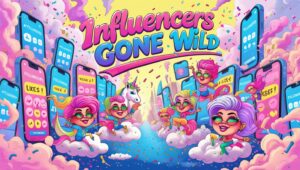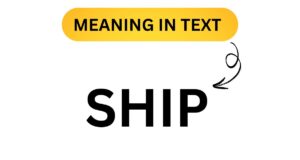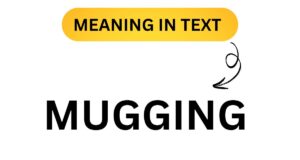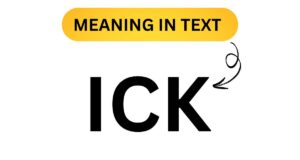Let’s be real for a second: when your teen starts talking to you in what sounds like a whole new language, it’s not just their attitude that’s changed. Nope, it’s the slang. And while you’re trying to keep up with their cool new vocabulary, it can feel like you’re missing out on some sort of insider club. But don’t worry, parents (or anyone trying to stay in the loop), this guide is here to help you navigate the sometimes confusing, often hilarious world of teen slang.
We’ve all been there. Your teen casually drops a “lit” or “no cap,” and you just stare at them, blinking, wondering if they’re speaking in code. Before you end up Googling “what does bruh mean?” let’s break it down and get you fluent in slang.
Why Should You Care About Teen Slang?
You might be thinking, “What’s the big deal? Slang is just slang, right?” Sure, it might seem like a trivial part of teen culture, but trust me, it’s more important than you think. Language is the backbone of communication, and for teens, slang is how they express their individuality, connect with their peers, and keep their identity fresh. If you understand it, you’ll be able to bond with your teen in ways you never expected. Plus, it’s just fun!
Teen slang also evolves super quickly, so what’s cool today might be “so last season” tomorrow. Keeping up with slang not only shows you’re engaged with your teen’s world but also that you’re trying to understand them better. So, let’s dive into this colorful world of abbreviations, metaphors, and memes and see how you can become a slang pro without losing your cool.
Slang 101: The Basics
Before we go into the deep end, let’s cover some essential basics about teen slang. Here’s what you need to know to get started:
- It’s All About Context: Slang words can mean completely different things depending on the situation. A word that’s “lit” at one party might be “dead” the next. So always listen to the context no, not everything is literally on fire (unless they’re talking about the party itself).
- It’s Short and Sweet: Teens love abbreviations and shortened versions of words. If you hear something that sounds like it should be two words long, it’s probably just been squished into one. So don’t freak out when they say “fam” instead of “family” or “sus” instead of “suspicious.”
- It’s Always Changing: Just when you think you’ve cracked the code, it changes. Teens are like language hackers they make new words or change the meaning of old ones all the time. Yesterday’s “dope” is today’s “fire.” And next week? Who knows! Stay alert.
Common Teen Slang You’ll Hear (And Wish You Didn’t)
Alright, here comes the fun part: breaking down the slang. Don’t worry, I’ll explain these terms in a way that won’t leave you more confused than you were before. So let’s dive in!
1. Lit – “This party is LIT!”
When your teen says something is “lit,” they’re not talking about the lights being on (unless, of course, it’s a rave). “Lit” means something is awesome, exciting, or fun. So if your teen comes home and says, “The concert was lit,” that’s a good thing, I promise.
2. Cap/No Cap “Stop capping!”
“Cap” means lying or exaggerating. “No cap” is the opposite—no lies, just the truth. It’s like when your teen says, “I’m really good at Fortnite, no cap.” They’re basically telling you they’re the real deal—no fibbing involved. If they say “stop capping,” they mean stop lying.
3. Bet “Bet, I’ll meet you there.”
No, your teen’s not talking about placing a wager. In this case, “bet” just means “Okay” or “I agree.” It’s a way of saying “you’ve got it” or “sure, I’ll do that.” Imagine it like a cool nod to confirm plans or ideas.
4. Flex “That’s a major flex.”
When your teen “flexes,” they’re showing off something they’re proud of, whether it’s their skills, their new shoes, or even their latest TikTok dance moves. So if they say, “That new car is a flex,” it’s their way of complimenting someone for showing off something awesome.
5. Bruh “Bruh, are you serious?”
“Bruh” is just a super casual way of saying “bro” or “dude.” It’s an expression of disbelief or frustration. So if your teen says “bruh” after hearing something crazy, they’re probably not impressed (unless it’s in a funny way).
6. Tea “Spill the tea.”
No, they’re not talking about a cup of Earl Grey. When your teen says “spill the tea,” they want the gossip. It’s all about drama and secrets, so if you hear them say “the tea is hot,” they mean there’s some juicy information that’s about to come out.
7. Ghosting “She ghosted me.”
“Ghosting” is a term for when someone suddenly stops talking to you without any explanation—like a ghost. If your teen says someone ghosted them, it means they’ve been ignored or dropped from communication without a trace. It’s like a silent breakup, but less dramatic.
8. Salty “Don’t be salty.”
When someone’s “salty,” they’re being grumpy, bitter, or upset about something. So if your teen tells you not to be salty, it’s a playful way of telling you not to take something too seriously or get mad about it. It’s all in good fun—unless you were really looking forward to that extra slice of pizza.
9. Simp “He’s such a simp.”
Ah, the “simp.” If your teen calls someone a simp, it’s usually not a compliment. It refers to someone (usually a guy) who does way too much for someone they’re into, often at the expense of their dignity or self-respect. So, no, you’re not a simp for buying your teen their favorite snack—unless you’re really overdoing it.
10. Vibe – “This song has such a good vibe.”
You’ve heard the term “vibe” used a lot, right? It’s that feeling or mood you get from something. Whether it’s a song, a party, or just hanging out with friends, if your teen says something has a good vibe, they mean it’s got a positive, chill, or good atmosphere. No pressure to make sense of it just let the good vibes flow.
Slang in Action: Real-Life Scenarios
Let’s be honest: slang can be a bit confusing until you see it in action. So let’s take a look at how these words might show up in a typical teen scenario. Grab your popcorn—here we go!
Imagine this: You walk into the living room, and your teen is hanging out with a few friends. They’re chatting about last night’s party.
Teen 1: “Yo, that party was straight-up lit!”
Teen 2: “For real! No cap, I had the best time.”
Teen 3: “Bet, I’m going next weekend for sure. It was the vibe.”
Teen 1: “Yo, did you see Jenna’s new shoes? Major flex.”
Teen 2: “Yeah, but I’m not gonna lie, I think she was lowkey capping when she said they were Gucci.”
In this scenario, they’re telling you everything was amazing (lit), no exaggerations involved (no cap), and they’re definitely going back (bet). They’re also admiring someone’s shoes (flex) while calling out a little fib (capping). Clear as mud, right?
How to Respond Without Sounding Like a Dad (Or Mom) Trying Too Hard
So, you’re in the know now, but how do you use slang without making it obvious that you’re trying a little too hard? Here’s the trick: Use it sparingly, and always with the right vibe. You don’t have to throw out “bet” in every sentence to fit in (unless you want to become the real party animal). Just drop it in naturally if it feels right.
For example:
- “No cap, I think I could totally beat you at Mario Kart.”
- “I’m feeling the vibes of this song let’s keep it on repeat.”
Just remember, if you don’t know what it means, it’s okay to ask. Slang is ever-changing, and there’s no shame in not being on top of every trend. In fact, sometimes not using slang is cooler than overdoing it.
Final Thoughts
Teen slang doesn’t have to be something to fear it’s your ticket to understanding the world your teen is living in. Plus, once you start getting the hang of it, you’ll find it’s actually pretty fun. So the next time your teen drops a “lit” or a “bet,” you’ll know exactly what’s going down. And who knows? You might even drop a “no cap” yourself.









